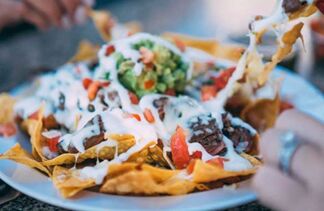什么时间吃和吃什么一样重要
|
We all know that eating badly, and eating too much, are associated with gaining weight. New research has shown that another factor is also important -what time of day you eat. A new study, published in The American Journal of Clinical Nutrition, showed that eating later in the evening was associated with a higher percentage of body fat. But it also found that the overall effects all came down to your own personal biological clock rather than the actual time. Researchers collected data from 110 college students over 30 days to observe their sleep times and eating habits. They also looked at when subjects released melatonin - the sleep hormone - to determine where their circadian rhythms (body clocks) were at.
They then examined the relationship between body clock setting, body mass index (BMI), and the timing of food consumption. The team expected to see that individuals who ate closer to their melatonin onset - which is usually occurs just before sleep - would have a higher percentage of body fat. Results showed that they were right, and those who had high body fat percentages consumed most of their calories shortly before going to bed, when melatonin levels were high. However, this didn't mean they found a relationship between eating later and gaining weight per se, rather that timing of when you consume calories, relative to your own biological timing, may be an important factor for your health. "We believe that our findings highlight that when you eat may be just as important as what you eat," lead author Andrew W. McHill, researcher with the Division of Sleep and Circadian Disorders at Brigham and Women's Hospital in Massachusetts, told Business Insider. "We actually hypothesise that the mechanism driving this result is a lower amount of energy expended to break down food that is consumed during the night, as we have shown that to be true during controlled laboratory studies." As with every study, there were a few limitations, such as the fact that participants may have under-reported how many calories they consumed, or may have changed their eating habits while they knew they were being tracked. There was also only one night where melatonin levels were assessed, so slight changes could not be identified. |









